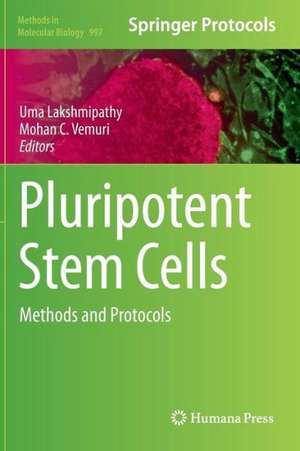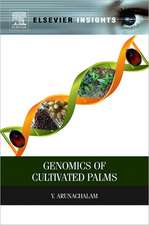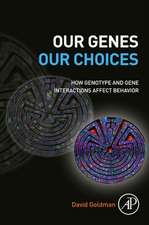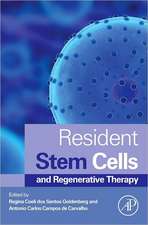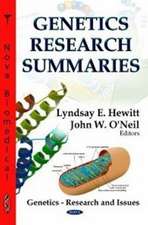Pluripotent Stem Cells: Methods and Protocols: Methods in Molecular Biology, cartea 997
Editat de Uma Lakshmipathy, Mohan C. Vemurien Limba Engleză Hardback – 2 apr 2013
Authoritative and easily accessible, Pluripotent Stem Cells: Methods and Protocols seeks to serve both professionals and novices with its well-honed methodologies in an effort to further our knowledge of this essential cellular feature.
| Toate formatele și edițiile | Preț | Express |
|---|---|---|
| Paperback (1) | 894.03 lei 6-8 săpt. | |
| Humana Press Inc. – 23 aug 2016 | 894.03 lei 6-8 săpt. | |
| Hardback (1) | 651.51 lei 6-8 săpt. | |
| Humana Press Inc. – 2 apr 2013 | 651.51 lei 6-8 săpt. |
Din seria Methods in Molecular Biology
- 9%
 Preț: 791.59 lei
Preț: 791.59 lei - 23%
 Preț: 598.56 lei
Preț: 598.56 lei -
 Preț: 496.79 lei
Preț: 496.79 lei - 20%
 Preț: 882.95 lei
Preț: 882.95 lei -
 Preț: 252.04 lei
Preț: 252.04 lei - 5%
 Preț: 729.61 lei
Preț: 729.61 lei - 5%
 Preț: 731.43 lei
Preț: 731.43 lei - 5%
 Preț: 741.30 lei
Preț: 741.30 lei - 5%
 Preț: 747.16 lei
Preț: 747.16 lei - 15%
 Preț: 663.45 lei
Preț: 663.45 lei - 18%
 Preț: 1025.34 lei
Preț: 1025.34 lei - 5%
 Preț: 734.57 lei
Preț: 734.57 lei - 18%
 Preț: 914.20 lei
Preț: 914.20 lei - 15%
 Preț: 664.61 lei
Preț: 664.61 lei - 15%
 Preț: 654.12 lei
Preț: 654.12 lei - 18%
 Preț: 1414.74 lei
Preț: 1414.74 lei - 5%
 Preț: 742.60 lei
Preț: 742.60 lei - 20%
 Preț: 821.63 lei
Preț: 821.63 lei - 18%
 Preț: 972.30 lei
Preț: 972.30 lei - 15%
 Preț: 660.49 lei
Preț: 660.49 lei - 5%
 Preț: 738.41 lei
Preț: 738.41 lei - 18%
 Preț: 984.92 lei
Preț: 984.92 lei - 5%
 Preț: 733.29 lei
Preț: 733.29 lei -
 Preț: 392.58 lei
Preț: 392.58 lei - 5%
 Preț: 746.26 lei
Preț: 746.26 lei - 18%
 Preț: 962.66 lei
Preț: 962.66 lei - 23%
 Preț: 860.21 lei
Preț: 860.21 lei - 15%
 Preț: 652.64 lei
Preț: 652.64 lei - 5%
 Preț: 1055.50 lei
Preț: 1055.50 lei - 23%
 Preț: 883.85 lei
Preț: 883.85 lei -
 Preț: 792.16 lei
Preț: 792.16 lei -
 Preț: 423.62 lei
Preț: 423.62 lei - 5%
 Preț: 425.91 lei
Preț: 425.91 lei -
 Preț: 592.20 lei
Preț: 592.20 lei - 5%
 Preț: 345.62 lei
Preț: 345.62 lei - 19%
 Preț: 491.88 lei
Preț: 491.88 lei - 5%
 Preț: 1038.84 lei
Preț: 1038.84 lei - 5%
 Preț: 524.15 lei
Preț: 524.15 lei - 18%
 Preț: 2122.34 lei
Preț: 2122.34 lei - 5%
 Preț: 1299.23 lei
Preț: 1299.23 lei -
 Preț: 789.93 lei
Preț: 789.93 lei - 5%
 Preț: 1339.10 lei
Preț: 1339.10 lei - 18%
 Preț: 1390.26 lei
Preț: 1390.26 lei - 5%
 Preț: 752.66 lei
Preț: 752.66 lei - 5%
 Preț: 374.89 lei
Preț: 374.89 lei - 18%
 Preț: 1395.63 lei
Preț: 1395.63 lei - 18%
 Preț: 1129.65 lei
Preț: 1129.65 lei - 18%
 Preț: 1408.26 lei
Preț: 1408.26 lei - 18%
 Preț: 1124.92 lei
Preț: 1124.92 lei - 18%
 Preț: 966.27 lei
Preț: 966.27 lei
Preț: 651.51 lei
Preț vechi: 766.49 lei
-15% Nou
Puncte Express: 977
Preț estimativ în valută:
124.70€ • 128.51$ • 105.28£
124.70€ • 128.51$ • 105.28£
Carte tipărită la comandă
Livrare economică 03-17 martie
Preluare comenzi: 021 569.72.76
Specificații
ISBN-13: 9781627033473
ISBN-10: 1627033475
Pagini: 304
Ilustrații: X, 292 p.
Dimensiuni: 178 x 254 x 20 mm
Greutate: 0.73 kg
Ediția:2013
Editura: Humana Press Inc.
Colecția Humana
Seria Methods in Molecular Biology
Locul publicării:Totowa, NJ, United States
ISBN-10: 1627033475
Pagini: 304
Ilustrații: X, 292 p.
Dimensiuni: 178 x 254 x 20 mm
Greutate: 0.73 kg
Ediția:2013
Editura: Humana Press Inc.
Colecția Humana
Seria Methods in Molecular Biology
Locul publicării:Totowa, NJ, United States
Public țintă
Professional/practitionerCuprins
Sources and Derivation of Human Embryonic Stem Cells.- A New Chemical Approach to the Efficient Generation of Mouse Embryonic Stem Cells.- A Review of the Methods for Human iPSC Derivation.- Generation of Human Induced Pluripotent Stem Cells by Lentiviral Transduction.- Generation of Induced Pluripotent Stem Cells with CytoTune, a Non-Integrating Sendai Virus.- Generation of Human Induced Pluripotent Stem Cells (hiPSCs) using Episomal Vectors on Defined Essential 8TM Medium Conditions.- Feeder-free Substrates for Pluripotent Stem Cell Culture.- Methods for Culturing Human Embryonic Stem Cells on Feeders.- Methods for Culturing Human Embryonic Stem Cells in a Xeno-Free System.- Directed Differentiation of Human Pluripotent Stem Cells Along the Pancreatic Endocrine Lineage.- Directed Differentiation of Pluripotent Stem Cells to Functional Hepatocytes.- Highly Efficient Directed Differentiation of Human Induced Pluripotent Stem Cells into Cardiomyocytes.- Generation of iPSC Lines from Human Normal and Neoplastic Blood Cells Using Episomal Vectors.- Cellular Characterization of Human Pluripotent Stem Cells.- TaqMan® OpenArray® High Throughput Transcriptional Analysis of Human Embryonic and Induced Pluripotent Stem Cells.- Epigenome Analysis of Pluripotent Stem Cells.- Single Cell Gene Expression Analysis of Pluripotent Stem Cells.- Profiling Stem Cells Using Quantitative PCR Protein Assays.- Labeled Stem Cells as Disease Models and in DrugDiscovery.- Cloning Technologies.- Stable Transfection Using Episomal Vectors to Create Modified Human Embryonic Stem Cells.- Site-Specific Integration in Human ESC Using Jump-In™ TI™ Technology.
Recenzii
From the reviews:
“This book is a collection of methods and protocols for the successful generation and characterization of pluripotent stem cells. … It will be helpful to researchers, lab technicians, and students interested in creating pluripotent cells and their commitment to specific cell lineages. … The combination of approachable methods and extremely detailed protocols make this a comprehensive guide for anyone interested in this specific field of research. … the figures, tables, and diagrams clarify the text and make the protocols easy to understand.” (Michele Fornaro, Doody’s Book Reviews, November, 2013)
“It is particularly wellcome a book devoted to the basic of the pluripotent stem cells … . All of the chapters are of great value and help in the every day lab working of the stem cell byologist, no doubt … .” (CarloAlberto Redi, European Journal of Histochemistry, Vol. 57, 2013)
“This book is a collection of methods and protocols for the successful generation and characterization of pluripotent stem cells. … It will be helpful to researchers, lab technicians, and students interested in creating pluripotent cells and their commitment to specific cell lineages. … The combination of approachable methods and extremely detailed protocols make this a comprehensive guide for anyone interested in this specific field of research. … the figures, tables, and diagrams clarify the text and make the protocols easy to understand.” (Michele Fornaro, Doody’s Book Reviews, November, 2013)
“It is particularly wellcome a book devoted to the basic of the pluripotent stem cells … . All of the chapters are of great value and help in the every day lab working of the stem cell byologist, no doubt … .” (CarloAlberto Redi, European Journal of Histochemistry, Vol. 57, 2013)
Textul de pe ultima copertă
Human pluripotent stem cells such as human embryonic stem cells (hESC) and induced pluripotent stem cells (iPSC) with their unique developmental plasticity hold immense potential as cellular models for drug discovery and in regenerative medicine as a source for cell replacement. While hESC are derived from a developing embryo, iPSC are generated with forced expression of key transcription factors to convert adult somatic cells to ESC-like cells, a process termed reprogramming. Using iPSC overcomes ethical issues concerning the use of developing embryos and it can be generated from patient-specific cells for downstream applications. Pluripotent Stem Cells: Methods and Protocols highlights the best methods and systems for the entire work flow. Divided into four convenient sections, topics include a focus on producing iPSC from diverse somatic sources, media systems for expanding ESC and iPSC with detailed protocols for directed differentiation into specific lineages, commonly used cellular and molecular characterization methods, and the potential application of labeled stem cells with specific methods for cloning, gene delivery and cell engineering. Written in the successful Methods in Molecular Biology™ series format, chapters include introductions to their respective topics, lists of the necessary materials and reagents, step-by-step, readily reproducible protocols, and notes on troubleshooting and avoiding known pitfalls.
Authoritative and easily accessible, Pluripotent Stem Cells: Methods and Protocols seeks to serve both professionals and novices with its well-honed methodologies in an effort to further our knowledge of this essential cellular feature.
Authoritative and easily accessible, Pluripotent Stem Cells: Methods and Protocols seeks to serve both professionals and novices with its well-honed methodologies in an effort to further our knowledge of this essential cellular feature.
Caracteristici
Includes cutting-edge methods and protocols Provides step-by-step detail essential for reproducible results Contains key notes and implementation advice from the experts Includes supplementary material: sn.pub/extras
